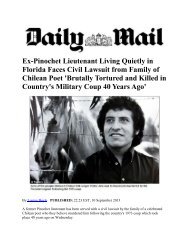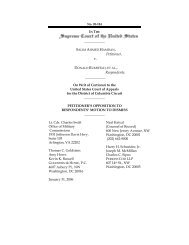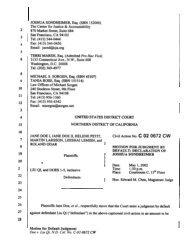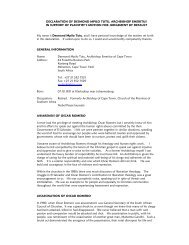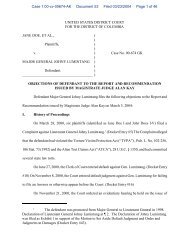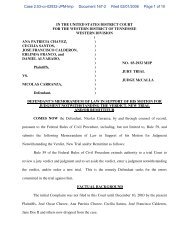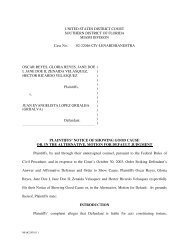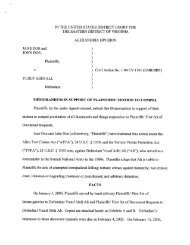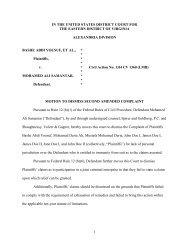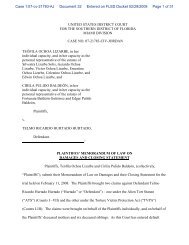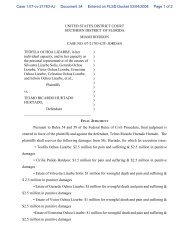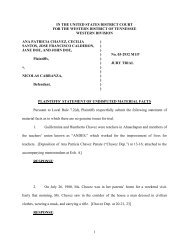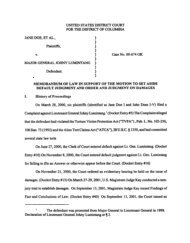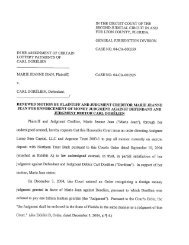SOSA v. ALVAREZ-MACHAIN - Legal Information Institute
SOSA v. ALVAREZ-MACHAIN - Legal Information Institute
SOSA v. ALVAREZ-MACHAIN - Legal Information Institute
Create successful ePaper yourself
Turn your PDF publications into a flip-book with our unique Google optimized e-Paper software.
Cite as: 542 U. S. ____ (2004) 11Opinion of the Courtthe presumptive choice in American courts under thetraditional rule would have been to apply foreign law todetermine the tortfeasor’s liability. See, e.g., Day & Zimmermann,Inc. v. Challoner, 423 U. S. 3 (1975) (per curiam)(noting that Texas would apply Cambodian law to wrongful-deathaction involving explosion in Cambodia of anartillery round manufactured in United States); Thomas v.FMC Corp., 610 F. Supp. 912 (MD Ala. 1985) (applyingGerman law to determine American manufacturer’s liabilityfor negligently designing and manufacturing aHowitzer that killed decedent in Germany); Quandt v.Beech Aircraft Corp., 317 F. Supp. 1009 (Del. 1970) (notingthat Italian law applies to allegations of negligent manufacturein Kansas that resulted in an airplane crash inItaly); Manos v. Trans World Airlines, 295 F. Supp. 1170(ND Ill. 1969) (applying Italian law to determine Americancorporation’s liability for negligent manufacture of aplane that crashed in Italy); see also, e.g., Dallas v. Whitney,118 W. Va. 106, 188 S. E. 766 (1936) (Ohio law appliedwhere blasting operations on a West Virginia highwaycaused property damage in Ohio); Cameron v.Vandergriff, 53 Ark. 381, 13 S. W. 1092 (1890) (Arkansaslaw applied where a blasting of a rock in Indian territoryinflicted injury on plaintiff in Arkansas).The application of foreign substantive law exemplifiedin these cases was, however, what Congress intended toavoid by the foreign country exception. In 1942, the HouseCommittee on the Judiciary considered an early draft ofthe FTCA that would have exempted all claims “arising ina foreign country in behalf of an alien.” H. R. 5373, 77thCong., 2d Sess., §303(12). The bill was then revised, at the——————operation of vehicles”); see generally Feres v. United States, 340 U. S.135, 139–140 (1950) (Congress was principally concerned with makingthe Government liable for ordinary torts that “would have been actionableif inflicted by an individual or a corporation”).



